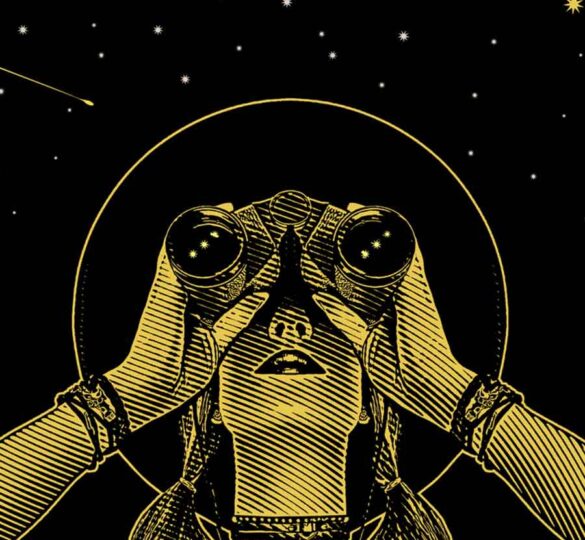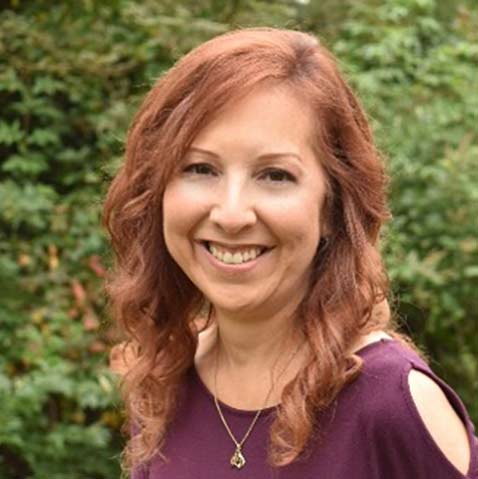Looking for the Good in Glaucoma
Five things I wish I’d known about the silent thief of sight. — Lisa Rouh's personal glaucoma story

What’s your medical phobia? For me, it’s the eye doctor, but after a lifetime of A+ eye exams, I never worried I’d have a problem – until I was diagnosed with chronic closed-angle glaucoma. Back then, I had no idea what glaucoma was. Today, thanks to new learnings and new perspectives, I feel more empowered and educated.
If this is all new to you, I want you to have that feeling of control right away. So, let’s chat about five things I’ve learned that might be helpful for you to know:
- If only Drano made an eye drain cleaner. My phenomenal ophthalmologist, Dr. Z., describes glaucoma as a problem with the plumbing in the eye. When the drain doesn’t work, the fluid builds up. The resulting pressure damages the optic nerve, the messenger that tells the brain what the eye sees. No messenger = no message = no sight. For me, that means the peripheral vision in my right eye is compromised, like a peephole, with a reduced ability to see light. Today, it’s permanent – but I have faith that with continued research, one of these tomorrows will bring a cure.
- It’s called the silent thief of sight for a reason. Glaucoma is not something most folks will feel, and they won’t notice it until the damage is done. You have to catch it early, and regular eye exams are the only way to do that. Even that precaution isn’t infallible, as I can attest after glaucoma fast-tracked itself in my eye in just a few months after a healthy exam. But don’t put your eye exams off for any reason, because glaucoma doesn’t wait. Have all your eye testing on the schedule your doctor recommends, and if you suspect you have a problem, don’t wait – get yourself in for an exam right away (we’re talking days, not weeks).
- Shining light on a dark problem. So how did I know something wasn’t quite right with my sight? I was having difficulty seeing certain angles and realized that retail store lights weren’t as bright as they should have been. It was difficult to explain, so I came up with my own test:
- Point your index finger vertically along the front edge of your nose, resting the end of your finger between your eyes.
- Close one eye. Can you still see your finger? Yes? Hooray!
- Now close the other eye. Can you still see your finger? I couldn’t.
- Look in the mirror. I joke that if you need me, you can find me in the bathroom, putting drops in my eyes! Eye drops, typically administered multiple times a day, are the frontline weapon in controlling eye pressure, and a constant, in-my-face reminder of what I’m fighting. You may have to take them once a day, twice a day, or more often. And I’m told they can eventually stop working, so you may have to switch over the course of your condition. It’s a grind, and it’s only delaying the damage. We need to put glaucoma and all these drops in our rearview mirror with a real cure.
- Empower yourself to be your own advocate. I can’t say this enough. Ask questions – lots of questions. Write them down so you remember them when you talk to your doctor. Seek out information. “Diagnosis Glaucoma” wasn’t a podcast I ever wanted to hear, but listening to those wonderful, compassionate experts from Johns Hopkins University made me an informed patient right from the start. If you’re not comfortable with your medical care or plan, get a second opinion, or get a new doctor. It’s your sight, and your future. Find a reliable source of information such as the Glaucoma Research Foundation’s website, videos, and webinars, so you understand what you’re up against, what to expect, how to make better decisions, and what is on the horizon for making glaucoma a thing of the past.
After my experience nine years ago with breast cancer, another unwelcome health visitor, I can see that I’m now more compassionate, caring, and faith-filled. So, when I look for the good in glaucoma, I am discovering how it’s making me a better person. It’s teaching me to let go of my quest for perfection (no matter what I do, I can’t make my eyes perfect again – yet), to celebrate the wins amidst the visible losses, and to find new ways – such as outreach like this blog and support of the medical professionals working to save our sight – to spread kindness and hope.
As Hebrews 11:1 reminds me, “Now faith is confidence in what we hope for and assurance about what we do not see.” We may not see a world without glaucoma now – but I have faith that it’s coming, and I want to be part of that solution. I hope you’ll join in the fight.
Personal Story Article contributed by Lisa Rouh. Posted on April 4, 2024.

Lisa Rouh
Lisa Rouh feels grateful and blessed to be a wife, mom, cat mom, horse g-mom, aunt, sister-in-law, friend, freelance writer and editor, and fighter against breast cancer and glaucoma.